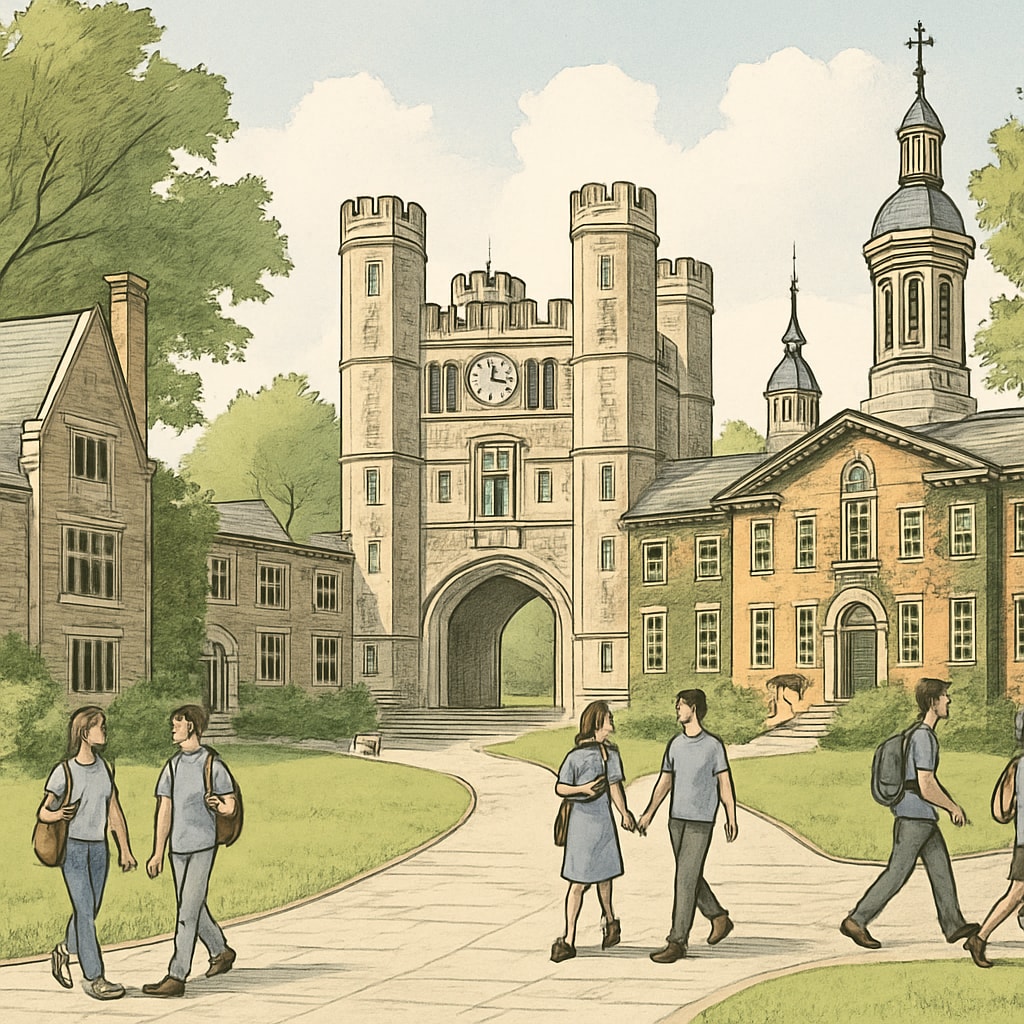For many students and parents, the name “Princeton University” conjures images of prestige, unparalleled education, and a guaranteed ticket to success. As one of the Ivy League’s most iconic members, Princeton has long been a symbol of academic excellence. However, are institutions like Princeton and the wider Ivy League being overvalued in the K12 education system? The obsession with these “elite universities” might be doing more harm than good, fostering unhealthy competition and overshadowing the core aim of education: personal growth and lifelong learning.
The Overemphasis on Prestige in K12 Education
The modern K12 education system often prioritizes preparing students to gain admission into prestigious universities like Princeton. This focus manifests in rigorous academic schedules, extracurricular overloading, and test preparation that starts as early as middle school. But is this relentless pursuit truly justified? According to a Britannica article on the Ivy League, these universities represent historical prestige rather than universal suitability for all students.
While Princeton undoubtedly offers world-class resources, its reputation sometimes overshadows the fact that not every student thrives in such an environment. The assumption that an Ivy League education is the ultimate goal disregards the diverse needs, talents, and aspirations of individuals. Moreover, this mindset can lead to unnecessary stress and burnout among students, who feel their worth is tied to admission letters bearing elite names.

Is Princeton Overrated in Delivering Real Value?
The question of whether schools like Princeton are overrated stems from the gap between perception and reality. Yes, Princeton boasts an impressive alumni network, small class sizes, and renowned faculty. However, studies have shown that long-term career success is not exclusively tied to attending an Ivy League institution. For example, a study by economists Alan Krueger and Stacy Dale revealed that the earning potential of students who were accepted into elite schools but chose less prestigious alternatives was nearly identical to those who attended the elite schools.
In addition, Princeton’s exclusivity raises ethical concerns. With an acceptance rate of just 6% in 2023, this model perpetuates inequality. Students from privileged backgrounds often have greater access to resources that enhance their applications, such as private tutors and legacy admissions. As a result, the Ivy League becomes less about “merit” and more about reinforcing socioeconomic divides.

Reassessing the True Purpose of Education
It’s time to shift the focus away from superficial markers of success, such as Ivy League admissions, and toward a broader definition of educational achievement. Parents, educators, and policymakers should consider the following points:
- Redefine success: Instead of idolizing a handful of universities, encourage students to explore schools that align with their unique interests and goals.
- Focus on well-being: Prioritize mental health and balanced lifestyles over relentless academic competition.
- Promote diverse paths: Celebrate alternative routes to success, such as vocational training, community colleges, and entrepreneurship.
By embracing a more holistic approach, we can create an education system that values individual strengths over institutional prestige.
Conclusion: Beyond the Ivy League
Princeton and its Ivy League peers undeniably offer incredible opportunities for the right candidates. However, the widespread glorification of these institutions in K12 education may lead to a narrow and often damaging perspective on success. It’s crucial to remember that the “best” university is not a one-size-fits-all concept. Instead, we should focus on nurturing well-rounded individuals who can thrive in diverse environments, regardless of the name on their diploma.
As we continue to question the value of elite universities, let’s work toward an education system that prioritizes personal growth, equity, and the true essence of learning.
Readability guidance: Short paragraphs and the use of lists make the content easily digestible. Transition words ensure smooth flow, while examples and data support the arguments presented.


